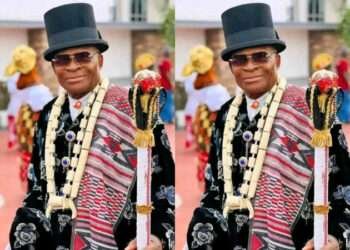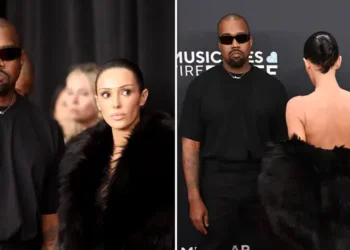Nigerian high-life superstar, Chinedu Okoli, popularly known as Flavour, has recounted his humble beginning from Enugu in his journey to fame.
According to Flavour, his first work with a professional artist was with rapper Nigga Raw (now Mr. Raw) for whom he played the piano in the studio.
Flavour recalled how he approached Nigga Raw’s producer to teach him music production, and he was charged 1,000 Naira weekly.
“From learning studio production to a producer. It was so easy because I was already an instrumentalist. From there, I started doing jobs as a producer, and I charged 5,000 per beat.”
Flavour
He also shared that he started accompanying Nigga Raw, who at the time, was one of the most famous artists in Eastern Nigeria to shows. Flavour later recorded the chorus to a Nigga Raw song that blew up in the East and gave his first glimpse of success.
The singer credited Nigga Raw with opening his eyes to what it means to be an artist.
“Nigga Raw was the guy that opened my eyes to what being an artist is about,” Flavour explained on the lessons he picked up from being a backup and spending time in the studio with Nigga Raw.

Flavour shared how he contemplated what type of music he wanted to make between RnB and Highlife before deciding that RnB isn’t a profitable route, so he settled for Highlife Fusion.
The singer recalled how he received a career-altering call from famous music marketer Obaino Music and made the journey from Enugu to Lagos in search of fame.
Flavour has been one of Nigeria’s most popular artists whose music has won him accolades and fans globally. He is well known for his ability to sing fluently in the Igbo language and was born in Enugu.
He began his music career at the age of 13; playing the drums for his church choir.
Flavour is popularly known across Africa and the world for his hit song Nwa Baby (Ashawo Remix)’.
He released his self-titled debut album ‘N’abania’ in 2005 through Obaino Music.
Since then, he has released eight albums. The projects include ‘African Royalty’, ‘Flavour of Africa’ (2020), ‘Awele’ (2018), ‘Ijele The Traveler’ (2017) and ‘Thankful’ (2014).
Others include ‘Blessed’ (2012), ‘Uplifted’ (2010) and ‘N’abania’ (2005). Flavour has also established himself as a household name in the music industry.
Singer Clarifies His Genre, Distances Himself from Afrobeats

Flavour clarified that he does not identify with the Afrobeats genre.
He expressed that he isn’t concerned about not being acknowledged for the global success of Nigeria’s Afrobeats movement because he doesn’t consider himself an Afrobeats artist.
Flavour emphasized that while he believes his contributions to African music merit recognition, the focus of the media on promoting only Afrobeats as Africa’s defining genre has limited such acknowledgement.
“I don’t feel bad when I’m not given credit on the global rise of African music because what the media is talking about is Afrobeats. I’m not an Afrobeats artiste,” he said.
“What I’m doing is African music. There are guys like Fally Ipupa, and Diamond Platinumz who are pushing African music globally that are not Afrobeats artists.
“Most times, the media just talks about Afrobeats. They are not talking about African music. If you talk about African music, of course, you should mention my name.”
Flavour
The Highlife artist encouraged the media to promote not only Afrobeats but also other popular African music genres.
Several fans of the singer agreed with him and they said that he is in a class of his own.
“Flavour is up there when it comes to consistency. If he was Yoruba or deep in the Lagos music industry, bro would be at Wiz, David, Olamide level.”
@kelvin_kertz
“His always been Highlife.”
@bugzydvinci
“He is who he thinks he is.”
@sauceprince1
“Let’s stop trying to put all our artists inside one box ‘afrobeat. We have other beautiful genres. Tired of this whole afrobeat-beat topic/discourse. Flavor isn’t afrobeat.”
@evelyn____xx
“Forget oh, Flavour levels are different.”
@koolkasper
READ ALSO: NDC Chairman Commends EC’s Digital Shift





















